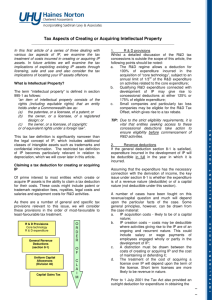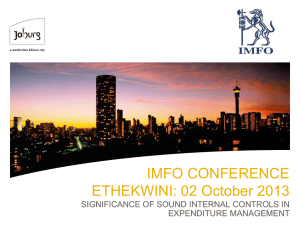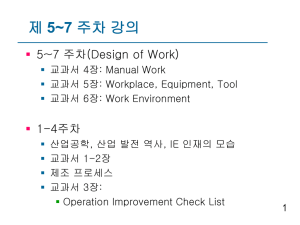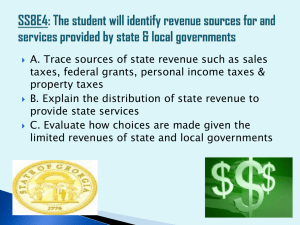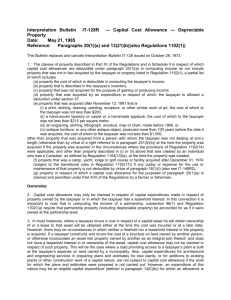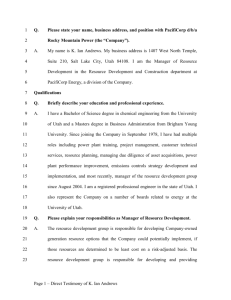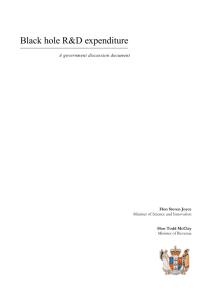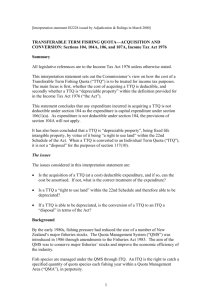Newsletter Special Alert Budget 2014
advertisement
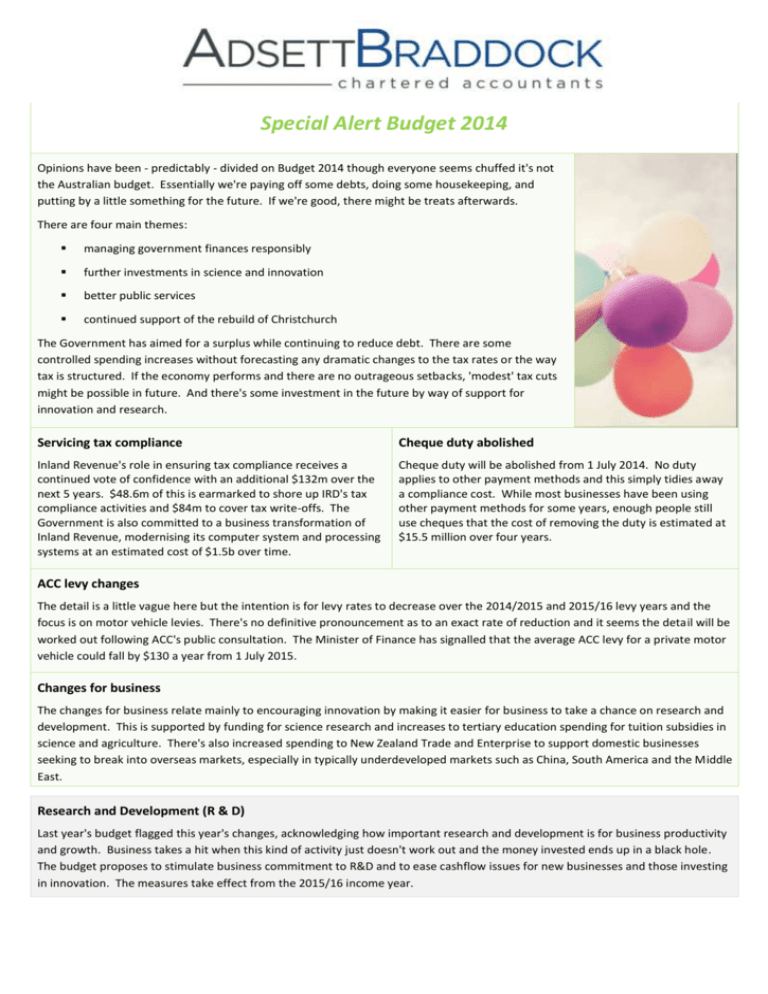
Special Alert Budget 2014 Opinions have been - predictably - divided on Budget 2014 though everyone seems chuffed it's not the Australian budget. Essentially we're paying off some debts, doing some housekeeping, and putting by a little something for the future. If we're good, there might be treats afterwards. There are four main themes: managing government finances responsibly further investments in science and innovation better public services continued support of the rebuild of Christchurch The Government has aimed for a surplus while continuing to reduce debt. There are some controlled spending increases without forecasting any dramatic changes to the tax rates or the way tax is structured. If the economy performs and there are no outrageous setbacks, 'modest' tax cuts might be possible in future. And there's some investment in the future by way of support for innovation and research. Servicing tax compliance Cheque duty abolished Inland Revenue's role in ensuring tax compliance receives a continued vote of confidence with an additional $132m over the next 5 years. $48.6m of this is earmarked to shore up IRD's tax compliance activities and $84m to cover tax write-offs. The Government is also committed to a business transformation of Inland Revenue, modernising its computer system and processing systems at an estimated cost of $1.5b over time. Cheque duty will be abolished from 1 July 2014. No duty applies to other payment methods and this simply tidies away a compliance cost. While most businesses have been using other payment methods for some years, enough people still use cheques that the cost of removing the duty is estimated at $15.5 million over four years. ACC levy changes The detail is a little vague here but the intention is for levy rates to decrease over the 2014/2015 and 2015/16 levy years and the focus is on motor vehicle levies. There's no definitive pronouncement as to an exact rate of reduction and it seems the detail will be worked out following ACC's public consultation. The Minister of Finance has signalled that the average ACC levy for a private motor vehicle could fall by $130 a year from 1 July 2015. Changes for business The changes for business relate mainly to encouraging innovation by making it easier for business to take a chance on research and development. This is supported by funding for science research and increases to tertiary education spending for tuition subsidies in science and agriculture. There's also increased spending to New Zealand Trade and Enterprise to support domestic businesses seeking to break into overseas markets, especially in typically underdeveloped markets such as China, South America and the Middle East. Research and Development (R & D) Last year's budget flagged this year's changes, acknowledging how important research and development is for business productivity and growth. Business takes a hit when this kind of activity just doesn't work out and the money invested ends up in a black hole. The budget proposes to stimulate business commitment to R&D and to ease cashflow issues for new businesses and those investing in innovation. The measures take effect from the 2015/16 income year. Business will be allowed tax deductibility for R&D 'black hole' expenditure that is currently not deductible or depreciable: for taxpayers carrying out R&D, capitalised development expenditure relating to patents, patent applications or plant variety rights, will be depreciable if it produces a depreciable tangible asset where capitalised development expenditure does not result in a depreciable intangible asset, a one-off deduction will be available. This is subject to clawback if, after the expenditure has been written off, the intangible asset becomes useful or is sold the costs of registered designs will become depreciable over 15 years and application costs for registered designs will be a current year deduction if the application is unsuccessful the cost of copyright in an artistic work that is used industrially will be depreciable over 16 years (product designs and casting moulds) or 25 years (works of craftsmanship) taxpayers who successfully develop computer software for their own business use can treat this expense as depreciable Start-up companies with tax losses from R&D expenditure will be able to cash up these losses, instead of having to carry them forward. If the eligibility criteria are satisfied, up to $500,000 of tax losses may be converted into a cash payment. At a 28% tax rate the maximum payment would be $140,000. This is initially capped at $500,000, rising by $300,000 per year to an eventual maximum of $2 million. Conditions apply (batteries not included). For instance, R&D expenditure must take up 20% of the company's salary and wage expenditure. The company can't be a look-through company, publicly listed or a special corporate entity. And there is potential for clawback of the cash payment under certain conditions, such as when the company sells intellectual property or goes into liquidation. Rebuilding Christchurch $40 billion is the figure everyone has in their heads for the estimated total cost of rebuilding Christchurch. The forecast is that half of this will have been outlaid by 30 June 2018. The Government's contribution overall is expected to be $15.4 billion, $7.3 billion incurred by the Earthquake Commission. This year's budget allocates $50 million over the next two years for the Canterbury Earthquake Recovery Authority, in addition to the $19 million funded from existing contingencies established in last year's Budget. $13.5 million will be provided over the next four years to continue the Earthquake Coordination Service, including counselling services and the Canterbury 0800 support phone line. A number of anchor projects are scheduled to start in 2014, including the $300 million Justice and Emergency Services precinct. Family focus On the home front there are changes to parental tax credit and parental leave with effect from 1 April 2015: the parental tax credit will increase from $150 a week to $220 a week, and the payment period will be extended from eight weeks to 10 weeks. This will increase the total credit from $1,200 to $2,200 in addition, the abatement rules will be changed to better target the parental tax credit towards low- to middle-income families. A couple having their second child, for example, will not receive any payments if together they earn more than $99,847 on 1 April 2015 paid parental leave will be extended from 14 weeks to 16 weeks and on 1 April 2016 to 18 weeks eligibility has been extended to include 'home for life' caregivers and people in less regular jobs, such seasonal and casual workers, workers with two employers and workers who have recently changed jobs Disclaimer This publication has been carefully prepared, but it has been written in general terms only. The publication should not be relied upon to provide specific information without also obtaining appropriate professional advice after detailed examination of your particular situation. Matt Baker Contact: Rob Jolliffe Contact: t: (09) 3734544 e: matt@adsettbraddock.co.nz t: (09) 3734544 e: rob@adsettbraddock.co.nz Adsett Braddock is the practising name of the separate practices of: Baker & Associates Ltd – Jolliffe & Associates Ltd Level 5, 110 Symonds Street PO Box 1579, Shortland Street, Auckland 1140
